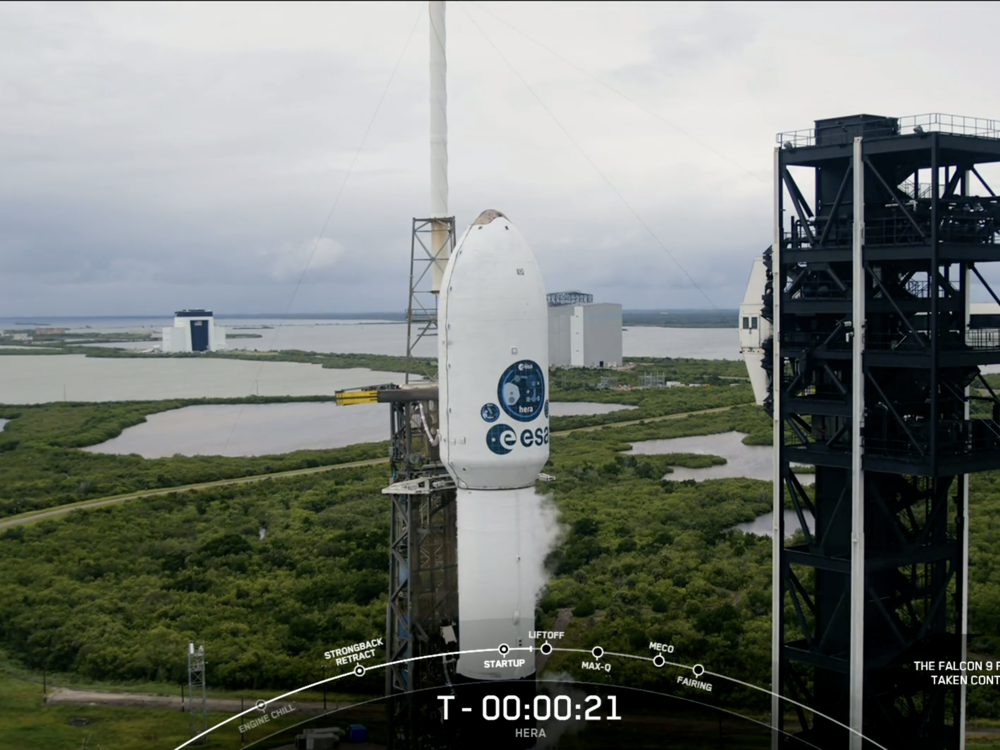Section Branding
Header Content
A European spacecraft launches to perform a crash scene investigation on an asteroid
Primary Content
A European spacecraft is heading to study an asteroid after NASA purposely knocked it off its course more than two years ago.
The European Space Agency’s (ESA) Hera spacecraft lifted off on a SpaceX Falcon 9 rocket from Cape Canaveral Space Force Station in Florida at 10:52 a.m. ET on Monday.
It's scheduled to conduct a "crash scene investigation," researchers said.
Hera’s mission will focus on the asteroid Dimorphos, where a golf cart-sized spacecraft crashed on Sept. 26, 2022. That mission, called the Double Asteroid Redirection Test (DART), shortened Dimorphos' orbit around Didymos, a bigger asteroid, by 33 minutes, researchers said.
The successful mission was only a test of the concept — to see, if an asteroid one day threatens to hit Earth, whether it could be pushed out of harm's way.
On a series of flybys, Hera will survey Dimorphos' mineral makeup and the dust surrounding it, the agency said. Its mission will also help scientists understand how big the crater is that was created during the DART mission, which they say could help in future asteroid deflections. Hera will also enable researchers to get a more accurate estimate of Dimorphos' mass.
The top ESA official called Monday's mission a "bold step" in ramping up the European agency's role in defending the planet.
“Planetary defence is an inherently international endeavour, and I am really happy to see ESA’s Hera spacecraft at the forefront of Europe’s efforts to help protect Earth,” ESA Director General Josef Aschbacher said in a statement.
While in space, Hera will also conduct experiments and try "self-driving" navigation around both asteroids, the agency also said.
The asteroids are part of a binary asteroid system in which Dimorphos, at about 530 feet across, orbits Didymos, about half a mile across. The two asteroids are not a threat to Earth, according to NASA. Both came within roughly 6 million miles of Earth in 2022, according to the ESA.
Hera’s mission will also include "the first detailed survey" of Didymos.
The spacecraft is set to reach the asteroids in the fall of 2026, according to the ESA.

